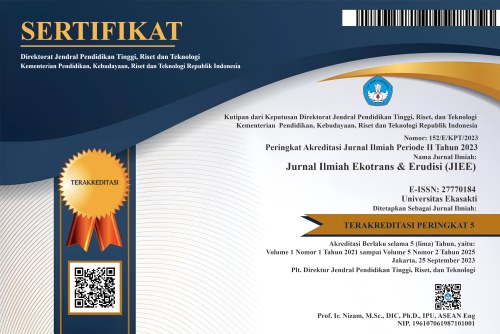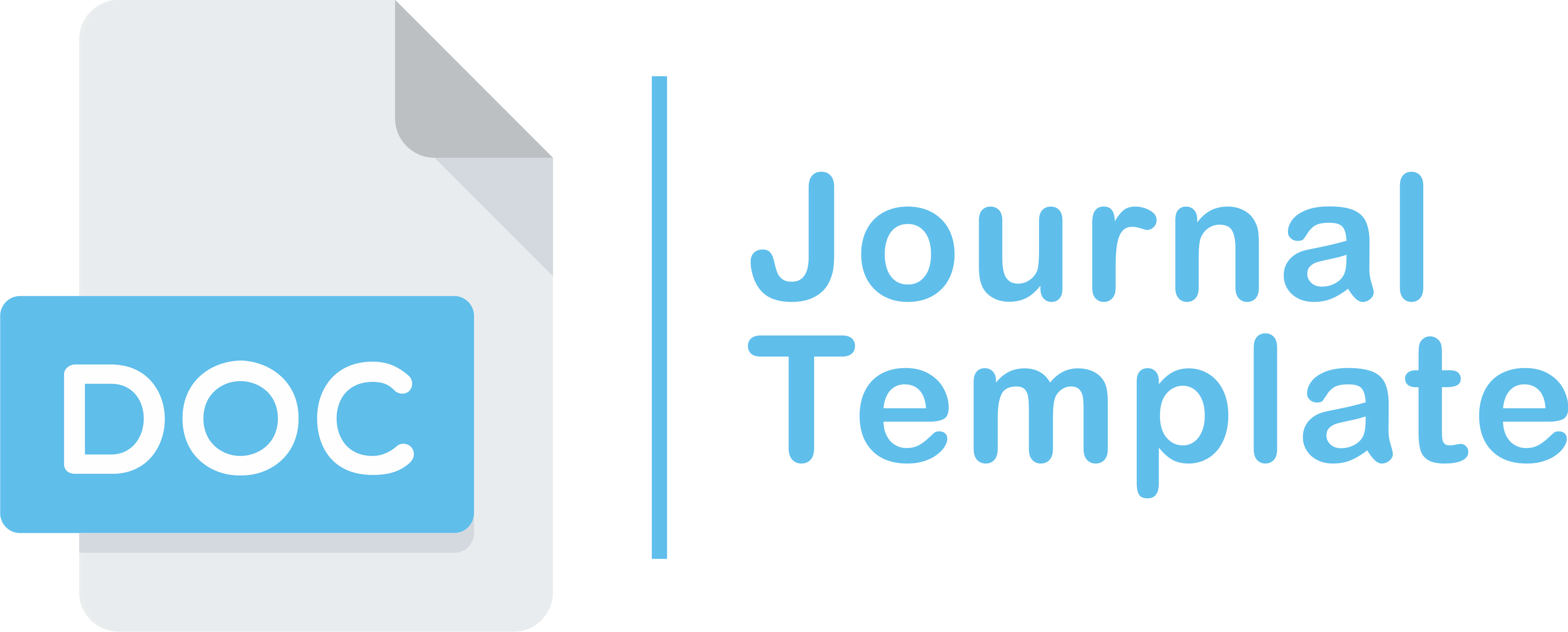Legal Certainty Of Local Inspections Regarding Land Disputes In Civil Cases
DOI:
https://doi.org/10.69989/k6jhry02Keywords:
Legal Certainly, Panel of judges, Local Inspections, Disputes, LandAbstract
The mechanism for resolving land rights disputes in the District Court is always handled by a judge, and before reaching an examination with an evidentiary agenda, the parties to the case will carry out efforts at peace or mediation. The judge/judicial panel, clerk/substitute clerk, and bailiff/substitute bailiff together with the parties present go to the location of the object to be inspected and carry out the inspection. The first thing that is asked for information is from the plaintiff in accordance with the contents of the lawsuit. The local inspection carried out by the judge has the function of assisting the judge in making his decision. The problems that arise are related to the role and function of the local inspection of the disputed object in the form of land if it is related to the construction of evidence in civil cases The problem formulation in this research is (1) Has the local examination of the object of a land dispute in a civil case provided legal certainty? (2) What are the legal implications of a local examination of a civil case object? and (3) What is legal certainty in future arrangements for local inspections of land objects in civil cases. From the results of the research carried out, it was found that local inspections were based on Article 153 HIR, Article 180 RBg and Articles 211 – 214 Rv and SEMA No. 7 of 2001 does not yet reflect legal certainty because it does not regulate in detail the local inspection mechanisms in the field, giving rise to multiple interpretations. Apart from that, the local examination is still ambiguous as to whether it is evidence whose evidentiary value is left to the judge or whether the local examination is not included in the category of evidence, it is an examination tool or method to obtain evidence. The results obtained in the local inspection are valid evidence. The legal implications of a local examination of a civil case object are (1) on the costs of the case if the judge desires a local examination, (2) on the evidentiary strength of the local examination. These two things contain legal consequences that need to be clarified in future regulatory aspects. Legal certainty in the future regulation of local inspections of land objects in civil cases is that all cases involving immovable objects such as land must be carried out locally and preferably carried out after further examination of evidence to overcome differences in the practice of carrying out local inspections. Uniformity of these arrangements is very important to create legal certainty regarding local inspections. Regulations regarding local examinations must be established at the statutory level so that they have strong binding power on all parties involved in the case, including judges, clerks and all.
Downloads
References
Babcock, B. A., Massaro, T. M., & Spaulding, N. W. (2021). Civil Procedure: Cases and Problems. Aspen Publishing.
Baihaqi, I. F. (2020). Urgensi Pemeriksaan Setempat (Descente) Dalam Sistem Pembuktian Perkara Permohonan Izin Poligami (Studi Putusan Izin Poligami Pengadilan Agama Tulungagung Tahun (2016-2019). UNIVERSITAS ISLAM NEGERI SUNAN KALIJAGA YOGYAKARTA.
Benu, M. O. (2023). Tinjauan Yuridis Tentang Pemeriksaan Setempat Terhadap Objek Sengketa Tidak Bergerak Sebagai Alat Bukti Dalam Perkara Perdata Di Wilayah Hukum Pengadilan Negeri Oelamasi. Jurnal Hukum Online, 1(4), 77–90.
Gélinas, F., Camion, C., Bates, K., Anstis, S., Piché, C., Khan, M., & Grant, E. (2015). Foundations of civil justice. Springer.
Glynn, A. N., & Sen, M. (2015). Identifying judicial empathy: does having daughters cause judges to rule for women’s issues? American Journal of Political Science, 59(1), 37–54.
Guest, J. W. (2017). Justice as Lawfulness and Equity as a Virtue in Aristotle’s Nicomachean Ethics. The Review of Politics, 79(1), 1–22.
Hamidi, J. (2006). Makna dan Kedudukan Hukum Naskah Proklamasi 17 Agustus 1945 dalam Sistem Ketatanegaraan Republik Indonesia. Risalah Hukum, 68–86.
Harahap, M. Y. (2017). Hukum acara perdata: tentang gugatan, persidangan, penyitaan, pembuktian, dan putusan pengadilan. Sinar Grafika.
Huneeus, A. (2013). International criminal law by other means: the quasi-criminal jurisdiction of the Human Rights Courts. American Journal of International Law, 107(1), 1–44.
Ibrahim, A.-S., Abubakari, M., Akanbang, B. A. A., & Kepe, T. (2022). Resolving land conflicts through alternative dispute resolution: Exploring the motivations and challenges in Ghana. Land Use Policy, 120, 106272.
Law, D. S. (2017). The anatomy of a conservative court: judicial review in Japan. In Public Law in East Asia (pp. 3–44). Routledge.
Mappasessu, M. (2023). Penerapan Teori Pembuktian dalam Sengketa Milik Tanah Agar Putusan Makin Efektif. Jurnal Pendidikan Tambusai, 7(2), 18891–18901.
Marzuki, P. M. (2016). Legal Research Revised Edition (12th Printing). Jakarta: Kencana Prenada Media Group.
Moeliono, A. M. (1990). Kamus besar bahasa Indonesia. Jakarta: Balai Pustaka.
Panjaitan, D. S., & Puryanto, P. (2022). Penyelesaian Sengketa Pelayanan Publik Oleh Lembaga Ombudsman Republik Indonesia. Jurnal Ilmiah Ekotrans & Erudisi, 2(1), 88–96.
Robertson, B., Vignaux, G. A., & Berger, C. E. H. (2016). Interpreting evidence: evaluating forensic science in the courtroom. John Wiley & Sons.
Rosalina, M. (2018). Pengaturan pemeriksaan setempat (Decentee) dalam peraturan perundang-undangan di Indonesia. Jurnal Hukum Kaidah: Media Komunikasi Dan Informasi Hukum Dan Masyarakat, 18(1), 1–10.
Scoones, I. (2013). Livelihoods perspectives and rural development. In Critical perspectives in rural development studies (pp. 159–184). Routledge.
Wiggins, D. (2013). Claims of need. In Morality and Objectivity (Routledge Revivals) (pp. 149–202). Routledge.
Wignjosoebroto, S. (2013). Hukum Konsep dan Metode.
Wixted, J. T., & Wells, G. L. (2017). The relationship between eyewitness confidence and identification accuracy: A new synthesis. Psychological Science in the Public Interest, 18(1), 10–65.
Downloads
Published
Issue
Section
License
Copyright (c) 2024 Marthen Benu, Moh. Ali, Rahmadi Indra Tektona (Author)

This work is licensed under a Creative Commons Attribution-ShareAlike 4.0 International License.
Copyright Notice
An author who publishes in the journal "Jurnal Ilmiah Ekotrans & Erudisi" agrees to the following terms:
Author retains the copyright and grants the journal the right of first publication of the work simultaneously licensed under the Creative Commons Attribution-ShareAlike 4.0 License that allows others to share the work with an acknowledgement of the work's authorship and initial publication in this journal
Author is able to enter into separate, additional contractual arrangements for the non-exclusive distribution of the journal's published version of the work (e.g., post it to an institutional repository or publish it in a book) with the acknowledgement of its initial publication in this journal.
Author is permitted and encouraged to post his/her work online (e.g., in institutional repositories or on their website) prior to and during the submission process, as it can lead to productive exchanges, as well as earlier and greater citation of the published work (See The Effect of Open Access).
All materials in this site are protected by the law. It is prohibited to quote a part of or all of this website contents for commercial purposes without the permission or consent of the editors.
If anyone finds one article or more in this journal violate or potentially violate one’s copyrights, please report to us through e-mail of Principle Contact.
Legal-formal aspects of accessing any information and manuscript in this journal website refer to the provision of license Creative Commons Attribution-Share Alike (CC BY-SA). Read more about the Creative Commons Attribution-ShareAlike 4.0 Licence here: https://creativecommons.org/licenses/by-sa/4.0/.
All information available in 'Jurnal Ilmiah Ekotrans & Erudisi' is academic in nature. 'Jurnal Ilmiah Ekotrans & Erudisi' is not responsible for loss due to the abuse of information in the website.
Information
Notice about change in the copyright policy of the journal 'Jurnal Ilmiah Ekotrans & Erudisi' : "From Volume 1, Nomor 1 onwards the copyright of the article published in the journal 'Jurnal Ilmiah Ekotrans & Erudisi' will be retained by the author"
Privacy Statement
The names and email addresses entered in this journal site will be used exclusively for the stated purposes of this journal and will not be made available for any other purpose or to any other party.




































